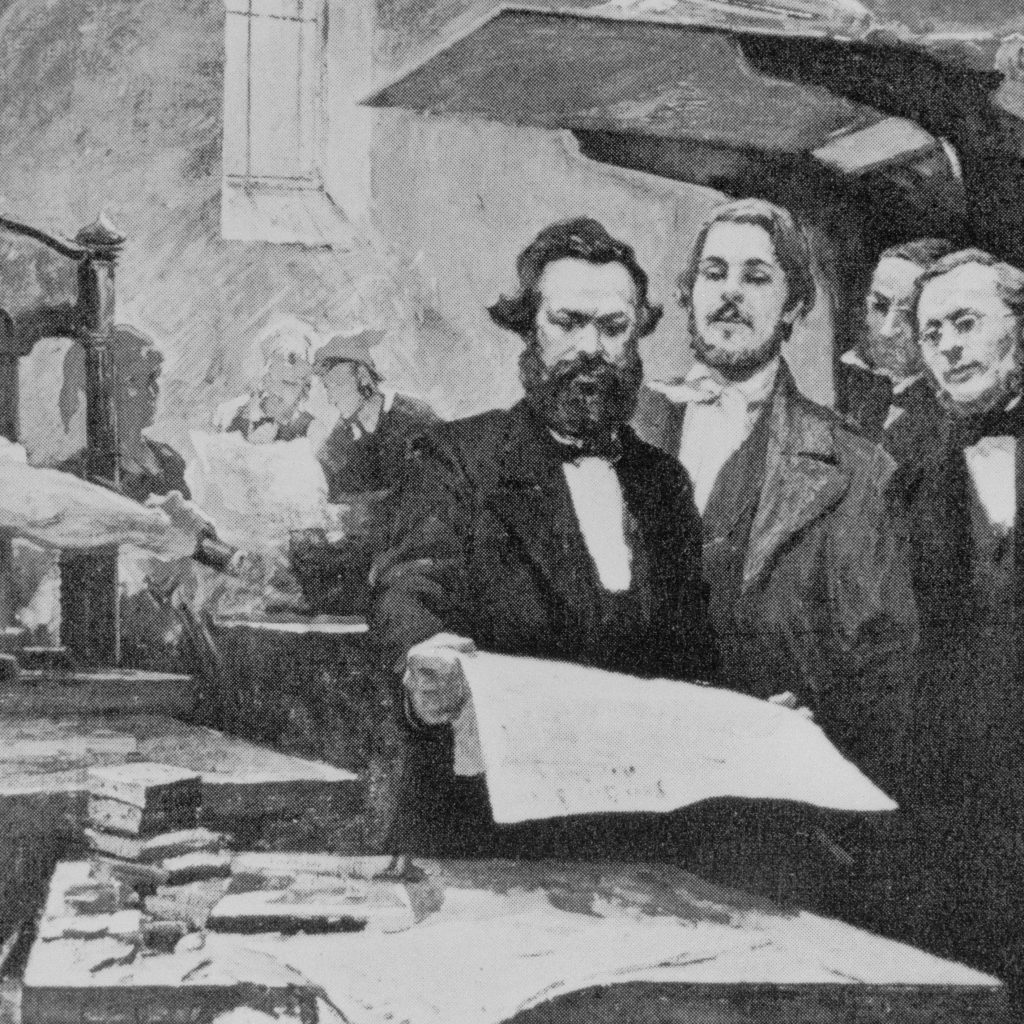Theory is a guide to correct action, not simply an esoteric affirmation of ‘life’. Revolutionary consciousness may arise from self-reflection but that consciousness can then only find an affirmation within the unclear mesh of external/internal reflections. Theoretical writing thus removes the internal elements by inspiring the external.
The only way to guarantee that reading theory does not just create a dilettante is ideology, history and the party. Ideology is a hegemonic culture that propagates its values and norms so that they become the “common sense” values.
What reduces ‘current’ ideology and makes room for the initial furtive steps of a new ideology, is history. History demonstrates that societal structures are the result of change within the material base of society. The new communist will begin to see the lawlessness, anarchy and moral emptiness of the current historical mode of production.
Herein, a party of the new type is necessary to demonstrate the way forward. As Stalin stated, “Today, the party must educate the workers in the spirit of revolutionary struggle for power, of preparing and moving up the reserves, of establishing an alliance with the proletarians of neighbouring countries, of establishing firm ties with the liberation movement in the colonies and dependent countries.” This new party will only see success through the unity of theory and action.
This new party finds its roots in some of the most elementary parts of Marxist theory. Marx always believed that if the theory was left to be purely speculative, it would end up as an idle waste of science. Marx insists that theory must be used as a tool to analyse the world. This means that he does not only look at the surface of a phenomenon but also the interior.
This first appears within Marx’s critique of Democritus: The Difference Between the Democritean and Epicurean Philosophy of Nature. Marx sees Democritus as a shallow empiricist, only wishing to look at matter (any solid thing) as he initially perceives looking into the thing itself. Marx rightfully states that theory must also be analysed and understood internally as well as externally if the theory is to be used in its proper context.
“For Democritus,… the atom is only the general objective expression of the empirical investigation of nature as a whole. Hence the atom remains for him a pure and abstract category, a hypothesis, the result of experience, not its active [energisches] principle. This hypothesis remains therefore without realisation, just as it plays no further part in determining the real investigation.”
From this narrow passage, Marx counters his critique of Democritus with his first creative steps towards materialism via his defence of Epicurus. Initially, Marx gives a descriptive account of atoms – or matter as Democritus explained, being self-contained, self-determining, self-actualising and containing contradictions the further their existence. In later Marxist literature, this would be called the law of the unity of opposites. The initial grounds for this law is the self-activity of things (actualisation). The self-activity of things provides the grounds for its progression, whatever it may be.
Lenin explains:
“In mathematics: + and -, differential and integral.
In mechanics: action and reaction.
In physics: positive and negative electricity.
In chemistry: the combination and dissociation of atoms.
In social science: the class struggle.“
Hereinafter, arises the beginning of a dialectical interplay of appearance versus reality that continues in the rest of Marx’s work and is a cornerstone of dialectical and historical materialism. The appearance of a thing versus it as an actual object or action may often have an irreconcilable gulf. It is the law of the unity of opposites that demonstrates that contradictions are universal in all things and it’s through self-activity they can be resolved.
Thus, it is the role of the party of a new to be there to provide a bridge to step over the abyss of personalism. The task of revolutionary consciousness is to change the world, not just one’s own life. It does this by calling the revolutionary to see the law of the unity of opposites, the universality of contradiction and the call to action inherent in these things.
Grant MacDonald, is a member of the YCL’s Edinburgh branch



